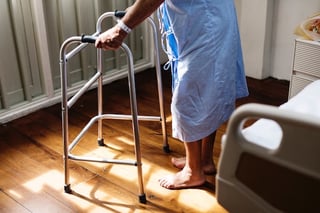 Hundreds of your neighbors want to know the same thing, because medical bills are the leading cause of consumer bankruptcy in Minneapolis. For various reasons, these expenses have increased much faster than the cost of other goods and services, so the size of these bills catches many people off guard.
Hundreds of your neighbors want to know the same thing, because medical bills are the leading cause of consumer bankruptcy in Minneapolis. For various reasons, these expenses have increased much faster than the cost of other goods and services, so the size of these bills catches many people off guard.
Bankruptcy gives families short and long-term relief from medical bills and other unsecured debts. Many area law firms stop there. But at Kain & Scott, our three-prong approach helps people take full advantage of the legal protections and financial fresh start that bankruptcy offers.
The Automatic Stay
For the most part, large multistate conglomerates control most hospitals, clinics, and other medical facilities. These large businesses have very large expenses, which explains why many of these companies are so aggressive when it comes to unpaid bills. Furthermore, these companies usually sell past-due accounts to debt buyers very quickly. The Supreme Court recently relaxed the protections in the Fair Debt Collection Practices Act, so debt buyers can be even more aggressive than they were before.
Minnesota has very strong consumer protection laws, so for the most part, medical providers cannot garnish wages and seize bank accounts to satisfy unpaid debts. However, these companies and the debt collectors they hire, can call consumers almost all the time, even while they are at work. Threatening letters fill the mailbox, and each one is a little more ominous than the one before. Very soon, the medical provider or debt buyer will file suit to collect the debt, and the judge may well authorize garnishment or some of the other measures mentioned earlier.
Bankruptcy’s automatic stay immediately halts all this activity. In most cases, all written and oral collection attempts must stop, and all lawsuits come to a screeching halt. The stay usually remains in effect for the duration of the Chapter 7 or Chapter 13 bankruptcy. Even the most obnoxious debt collectors know that there are very stiff penalties for violating the automatic stay, so they always back off.
Debt Discharge
Both types of consumer bankruptcy usually discharge unpaid medical bills and other unsecured debts. These words have very precise meanings. “Discharge” means that the debtor no longer has a legal obligation to repay the debt. Meanwhile, “unsecured” debts are those that are only related to a verbal or written promise to pay. Credit cards are unsecured debts as well, in addition to most cash loans.
The underlying debt remains, as does the notation on a credit report. However, instead of in the prominent past-due section, the account usually moves to the end of the report. Furthermore, instead of dragging the FICO score lower every month, because each unpaid month adds to the delinquency, these notes stop.
The effects of discharge make it easier to rehabilitate a credit score, as outlined below.
Recovery from Bankruptcy
Before bankruptcy, medical and other creditors hold all the cards. They can ignore your family’s financial hardships, demand immediate payment in full, and take action in and out of court to collect what they claim you owe.
During bankruptcy, moneylenders cannot take any action to collect past-due accounts. As a side note, if you pay bills via automatic bank drafts that the creditor controls, the moneylender may also halt these automatic payments.
After bankruptcy, you hold all the cards. Since bankruptcy ends your obligation to pay the debt, the creditor no longer has any leverage at all. This change gives you the opportunity to negotiate from a position of strength instead of weakness. One possible option, which our credit repair process uses quite often, involves negotiating with the debtor to arrange a partial payment in exchange for the earlier removal of negative information on a credit report.
Bankruptcy eliminates medical bills and puts you on the road toward a fresh start. For a free consultation with an experienced bankruptcy attorney in Minneapolis, contact Kain & Scott. We routinely handle cases in Hennepin County and nearby jurisdictions.



